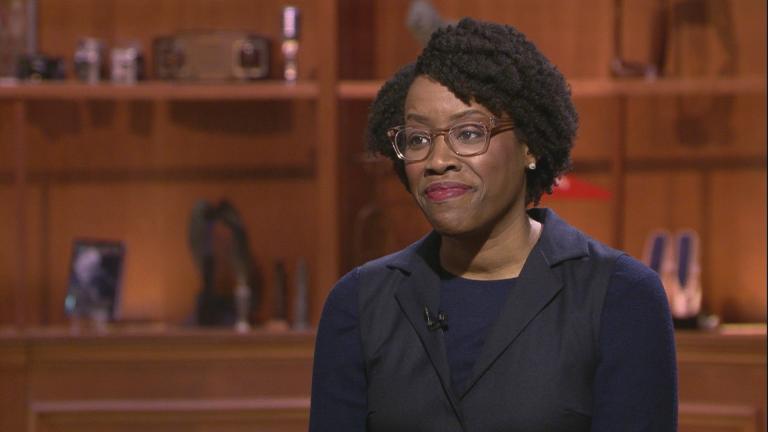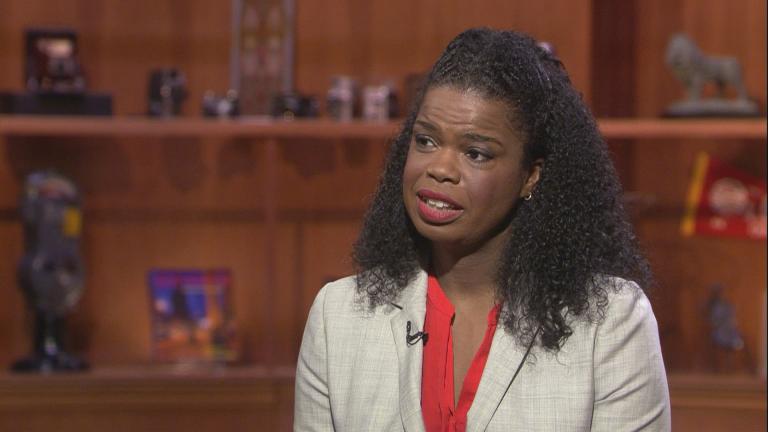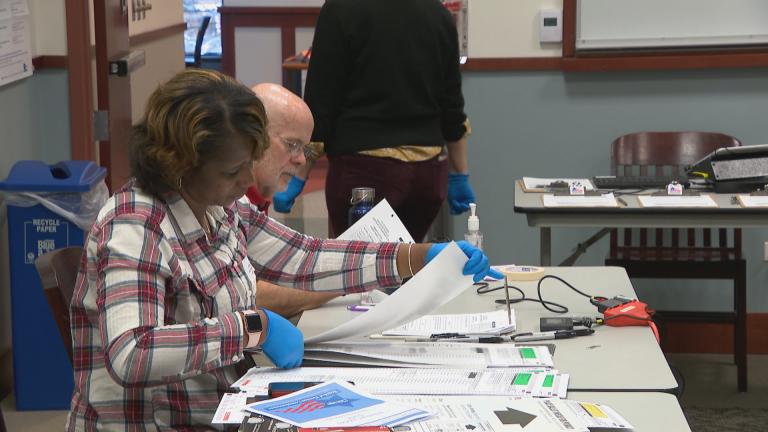The highly anticipated Iowa caucuses ended in chaos and confusion Monday night.
Citing “inconsistencies” with a new mobile app used to count votes, Democrats delayed releasing results until Tuesday afternoon.
The debacle raises new questions about the security of our voting systems as the country heads into the 2020 presidential race. What safeguards does Illinois have in place to ensure election security?
Joining “Chicago Tonight” with their thoughts are:
• Matt Dietrich, public information officer for the Illinois State Board of Elections.
• Jim Allen, spokesperson for the Chicago Board of Election Commissioners.
• Anita Nikolich, former program director for cybersecurity at the National Science Foundation, research professor at the Illinois Institute of Technology, and fellow at the Cyberpolicy Initiative at the Harris School of Public Policy at the University of Chicago.
Below, a Q&A with our guests.
Do you have any thoughts on what went wrong in Iowa?
Nikolich: I was pretty surprised to see that there had been no beta testing of this mobile vote-counting app and shocked that they didn’t tell the Democratic National Committee they were going to be using it. The DNC has concerns in general of using apps like this, without robust beta testing of the technology.
Allen: This will raise issues not just about Iowa, but the caucus process itself. It’s not as inclusive, because lots of people can’t take several hours to spend at a town-hall-meeting-style event, or maybe they can’t make it there for other reasons, like they’re out of town or in the military. Colorado used to have caucuses, but dropped it because people liked to vote in private. Also, there’s no way to recount the votes, because this is all head counting, there’s no actual vote.
Should we be concerned about our elections here in Illinois?
Dietrich: What happened last night is no indicator of Illinois elections. Illinois, in both primary and general elections, has all kinds of protocols about how ballots are tabulated and handled. It’s a very precise process.
Nikolich: Our elections have been vulnerable for a long time – both the technical infrastructure that’s used, but also the voter registration databases. We should be very concerned about people wanting to skew an election by getting into voter databases. For example, you could simply take people of a certain ethnicity and delete them from the voter database. Doing something like that could easily make a big difference in an election.
Here in Illinois, Russian hackers got access to about 70,000 voter records in 2016. Illinois has gotten $13 million to improve the security of our voter registration database, but that’s a drop in the bucket.
Dietrich: We always try to make sure people understand the Russian hacking had to do with voter registration database, didn’t impact election. Pretty far-fetched to imagine that anyone could hack a ballot. There’s so much security surrounding those machines. They’re secured by computer equipment that’s never on the public internet.
Every state, even at the county and city level, is different in how it handles elections, right?
Dietrich: That’s right. Illinois has what’s called a bottom-up system, a more localized, decentralized system. One-hundred-and-two county clerks and six municipal boards of elections run the elections. We believe the bottom-up system is good because, for example, when our voter database was hacked in 2016, it didn’t destroy our voter database. That’s because our database is recreated each day when the local authorities upload their voter info. If you wanted to conduct a cyberattack with intent of interfering with elections throughout Illinois, you’d have to attack 108 local jurisdictions.








